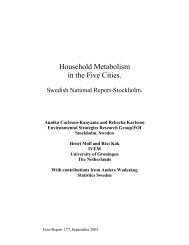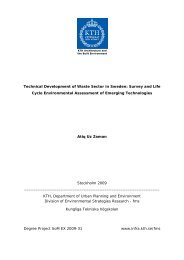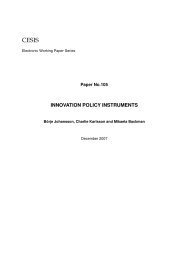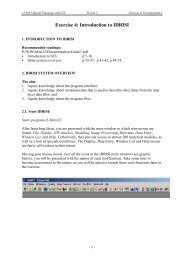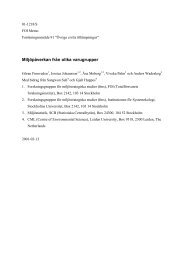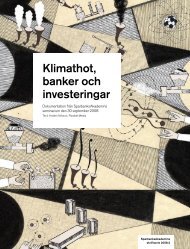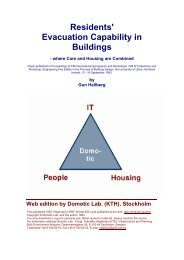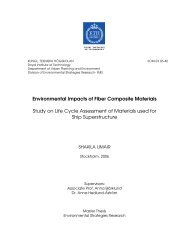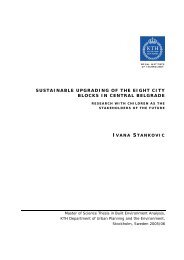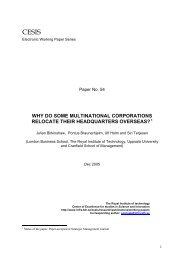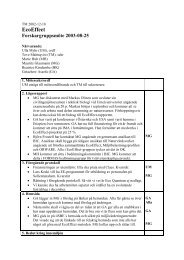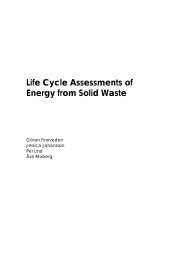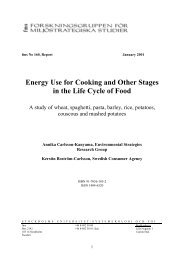Stockholmarnas resvanor - mellan trängselskatt och klimatdebatt
Stockholmarnas resvanor - mellan trängselskatt och klimatdebatt
Stockholmarnas resvanor - mellan trängselskatt och klimatdebatt
Create successful ePaper yourself
Turn your PDF publications into a flip-book with our unique Google optimized e-Paper software.
The authorities and politicians involved seemed ill-prepared for the<br />
wide range of reactions aroused. The value of trialling reforms at full scale<br />
should thus be considered, e.g. in relation to other areas of politics. The<br />
unusual circumstances of the trial also shed light on routines and habits, for<br />
example in terms of which trips were actually cancelled, thus decreasing<br />
the total number of trips. It transpired that it was not routine trips such as<br />
work, food shopping and service that were cancelled, but trips for social or<br />
leisure reasons. It was rather occasional activities and trips in the process<br />
of being developed or tested that were cancelled. The trial appears to have<br />
contributed to interrupting habit-forming processes regarding these.<br />
The Stockholm trial also brought about a shift in the balance between<br />
various positions in the area of transport and environmental politics. In<br />
previous conflicts regarding e.g. the building of new ring roads, the environmental<br />
lobby felt justified in describing itself as disadvantaged, and<br />
often highlighted unsatisfactory circumstances, injustices and other problems<br />
associated with political decisions. With the Stockholm trial, however,<br />
it was the motoring lobby that led the conflict against the politicians.<br />
Overall, a relatively large number of people accepted the charges and<br />
eventually voted yes in the referendum, perhaps because traffic in Stockholm<br />
is an area in which the general public want political action and concrete<br />
measures, as shown by the strongly negative and the mildly positive<br />
reactions. The fact that many of those critical of the charges provided<br />
detailed ideas for alternative measures confirms this assumption.<br />
The trial extended the scope of politicians’ and local residents’ ideas<br />
about possible solutions to the problems created by Stockholm traffic.<br />
Thus in the longer term, it could well have paved the way for other types<br />
of new initiatives in the region’s traffic politics.<br />
Families with and without a car<br />
Part C) of the thesis showed that car-owning families in suburban residential<br />
areas employed specific strategies for planning their travel. They had<br />
different timetables for different activities and performed a great deal of<br />
their activities ‘en route’, especially in connection with compulsory work<br />
trips, in contrast to the households with less car-dependent travel patterns.<br />
The timetables for planning different activities ranged from a few weeks<br />
to days or minutes, depending on the activity involved. Using examples<br />
from the interviews and travel diaries, it can be discussed whether e.g. a<br />
mother’s visit to a skin specialist, as entered in the diary, is more prioritised<br />
178 Summary




